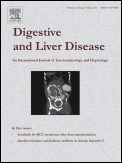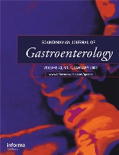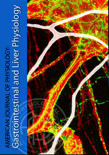
EUROPEAN JOURNAL OF GASTROENTEROLOGY & HEPATOLOGY
Scope & Guideline
Fostering excellence in gastroenterology and hepatology.
Introduction
Aims and Scopes
- Clinical Research in Gastroenterology and Hepatology:
The journal publishes studies that investigate clinical outcomes, treatment efficacy, and disease management in gastroenterology and hepatology, emphasizing real-world applications and patient-centered care. - Innovative Diagnostic and Therapeutic Techniques:
Research on the development and evaluation of new diagnostic tools and therapeutic interventions, including endoscopic procedures and minimally invasive techniques, is a core focus area. - Epidemiological Studies and Public Health:
The journal features epidemiological research that explores the prevalence, risk factors, and public health implications of gastrointestinal and liver diseases, contributing to evidence-based healthcare policies. - Basic and Translational Research:
Studies that investigate the underlying mechanisms of gastrointestinal and liver diseases at the molecular and cellular levels, including pathophysiology and genetic factors, are highly valued. - Nutritional and Lifestyle Interventions:
The journal encourages research that examines the impact of diet, nutrition, and lifestyle modifications on gastrointestinal and liver health, reflecting the growing interest in holistic approaches to disease management. - Patient Quality of Life and Health Economics:
Research assessing the quality of life in patients with gastrointestinal and liver diseases, as well as cost-effectiveness analyses of treatments, is increasingly prominent in the journal.
Trending and Emerging
- Artificial Intelligence in Gastroenterology:
There is an increasing trend in the exploration of artificial intelligence and machine learning applications for improving diagnostic accuracy and treatment outcomes in gastroenterology, reflecting the digital transformation in healthcare. - Microbiome Research:
Studies investigating the role of the gut microbiome in gastrointestinal health and disease, including its impact on treatment responses and disease mechanisms, have gained significant attention in recent years. - Personalized Medicine and Targeted Therapies:
The focus on personalized medicine, especially in the context of inflammatory bowel disease and liver disorders, is trending, with research aimed at tailoring treatments based on individual patient profiles. - Integrative Approaches to Treatment:
There is a growing interest in integrative medicine, emphasizing the combination of conventional therapies with dietary, lifestyle, and complementary approaches to enhance patient outcomes. - Longitudinal Cohort Studies:
The trend of conducting long-term cohort studies to track disease progression and treatment efficacy over time is rising, providing valuable insights into chronic conditions such as hepatitis and inflammatory bowel disease.
Declining or Waning
- Traditional Pharmacological Approaches:
There has been a noticeable shift towards innovative therapies and personalized medicine, leading to a decreased focus on traditional pharmacological treatments and their efficacy in managing gastrointestinal diseases. - Single-Center Studies:
The prevalence of single-center studies has diminished as there is a growing emphasis on multicenter collaborations that provide broader data and enhance the generalizability of findings across diverse populations. - Non-Interventional Studies:
The journal has seen a decline in the publication of purely observational studies that do not contribute to direct clinical applications or advancements in treatment protocols. - Basic Science without Clinical Relevance:
Research that lacks direct applicability to clinical practice or does not address pressing clinical questions has become less favored, as the journal prioritizes studies with tangible impacts on patient care. - Outdated Techniques and Technologies:
As new diagnostic and therapeutic techniques emerge, studies focusing on outdated or less effective methods have decreased, reflecting the journal's commitment to advancing contemporary practices.
Similar Journals

Gastroenterology
Empowering Healthcare Professionals with Essential InsightsGastroenterology, published by W B Saunders Co-Elsevier Inc, is a premier journal dedicated to advancing the knowledge and practice within the fields of gastroenterology and hepatology. Established in 1945 and covering a wide range of topics related to digestive health, this journal holds a distinguished position in the academic community, as evidenced by its impressive Q1 status in both Gastroenterology and Hepatology categories, and its high rankings (4th in both disciplines) in Scopus, placing it in the top percentile for scholarly impact. With its commitment to publishing high-quality research, reviews, and clinical studies, Gastroenterology provides an essential resource for researchers, healthcare professionals, and students seeking cutting-edge insights that inform clinical practices and enhance patient care. Although it does not currently offer open access, the journal continues to serve as a vital platform for disseminating meaningful research that shapes the future of digestive disease management.

DIGESTIVE AND LIVER DISEASE
Innovating research for better patient outcomes.DIGESTIVE AND LIVER DISEASE is a prominent journal published by Elsevier Science Inc, dedicated to advancing the field of gastroenterology and hepatology. With an ISSN of 1590-8658 and an E-ISSN of 1878-3562, this journal has established itself as a significant resource within the academic community, especially considering its Q2 ranking in both gastroenterology and hepatology categories as of 2023. Spanning from 2000 to 2024, the journal presents a diverse array of peer-reviewed articles, clinical studies, and review papers that explore the latest advancements and research findings in digestive and liver diseases. The journal's robust impact, reflected in its Scopus rankings—40th out of 167 in gastroenterology and 28th out of 82 in hepatology—highlights its critical role in shaping practices and understanding in these vital areas of medicine. With open access options available, DIGESTIVE AND LIVER DISEASE aims to make high-quality research accessible to a wider audience, thereby encouraging collaboration and innovation. Researchers, healthcare professionals, and students alike will find valuable insights into the complex mechanisms, diagnostics, and therapeutic strategies pertinent to digestive and liver health.

JOURNAL OF GASTROENTEROLOGY
Advancing gastrointestinal research for a healthier tomorrow.JOURNAL OF GASTROENTEROLOGY, published by SPRINGER JAPAN KK, is a premier academic journal that has been at the forefront of gastrointestinal research since its inception in 1994. With an impressive Impact Factor and ranking in the top quartile (Q1) of its category, this journal holds a significant place in the field of gastroenterology, currently ranked 12th out of 167 in Scopus, placing it in the 93rd percentile. The journal serves as an essential platform for disseminating innovative research, clinical studies, and reviews that foster advancements in the understanding and treatment of gastrointestinal diseases. Although it does not offer Open Access options, it provides researchers, clinicians, and students access to crucial insights and breakthroughs pivotal to improving patient care and outcomes in gastroenterology. With a commitment to high-quality peer-reviewed content, JOURNAL OF GASTROENTEROLOGY plays a vital role in shaping the future of gastrointestinal health and research.

HPB
Pioneering research for better liver health.HPB is a premier journal dedicated to advancing the fields of Gastroenterology and Hepatology, published by Elsevier Science Ltd. With an impressive impact factor reflective of its high-quality research output, HPB has earned its place as a Q1 journal in Gastroenterology and Q2 in Hepatology as of 2023. The journal, available in both print and electronic formats (ISSN: 1365-182X; E-ISSN: 1477-2574), serves as a vital platform for multidisciplinary research, encompassing clinical and experimental studies, aimed at improving patient care and outcomes related to liver and biliary diseases. Since its inception in 2000, HPB has published influential articles that have shaped practice and policy in the field. Located in the United Kingdom, at 125 London Wall, London EC2Y 5AS, the journal is poised to continue its mission of fostering innovation and collaboration among researchers, healthcare professionals, and academicians worldwide.

SCANDINAVIAN JOURNAL OF GASTROENTEROLOGY
Pioneering Research for Enhanced Patient OutcomesSCANDINAVIAN JOURNAL OF GASTROENTEROLOGY, published by Taylor & Francis Ltd, is a leading journal in the field of gastroenterology, dedicated to advancing clinical and experimental research related to digestive health. With an ISSN of 0036-5521 and an E-ISSN of 1502-7708, this journal provides a platform for high-quality research that addresses the complexities of gastrointestinal diseases. Since its inception in 1966, the journal has consistently contributed valuable insights and is currently categorized in the Q2 quartile of gastroenterology journals, reflecting its impact and relevance in the field, with a Scopus rank of 87 out of 167 in Medicine - Gastroenterology. Researchers and practitioners are encouraged to explore the journal's archives to enhance their understanding and stay abreast of innovative strategies for managing gastrointestinal disorders. The SCANDINAVIAN JOURNAL OF GASTROENTEROLOGY remains a crucial resource for those committed to improving patient outcomes through rigorous scientific inquiry and the sharing of impactful findings.

Hepatology Forum
Illuminating the path to better liver health.Hepatology Forum is an esteemed journal dedicated to disseminating cutting-edge research and insights in the fields of gastroenterology and hepatology. Published by KARE PUBL in Turkey, this journal serves as a vital platform for researchers, clinicians, and healthcare professionals aiming to advance their knowledge and practices related to liver diseases and gastrointestinal disorders. With an ISSN of 1307-5888 and an E-ISSN of 2757-7392, it features peer-reviewed articles that encompass a wide range of topics from basic research to clinical applications. Although categorized in the Q3 quartile for both gastroenterology and hepatology in 2023, Hepatology Forum continues to show significant potential for growth and impact, as evidenced by its Scopus rankings. Through its commitment to open scientific exchange, the journal not only facilitates the sharing of innovative methodologies and findings but also fosters networking among professionals in the field. As it converges through the years from 2020 to 2024, Hepatology Forum remains an important resource for the advancement of liver health and diseases, appealing to both established experts and emerging scholars alike.

Gut and Liver
Connecting science and practice in digestive health.Gut and Liver is a prestigious peer-reviewed journal dedicated to advancing the fields of Gastroenterology and Hepatology. Published by the EDITORIAL OFFICE GUT & LIVER in South Korea, this Open Access journal has been disseminating valuable research findings since 2007, making critical knowledge accessible to a global audience. With an impressive 2023 impact factor that places it in Q1 rank in both Gastroenterology (#28/167) and Hepatology (#22/82), it is recognized as a leader in the medical domain. The journal covers diverse topics, including innovative therapeutic strategies, clinical practices, and groundbreaking research in liver diseases and gastrointestinal disorders, thereby playing a vital role in improving patient care and outcomes. Researchers, healthcare professionals, and students can benefit from the journal's wealth of information, designed to foster collaboration and spark new ideas within the scientific community. For further engagement with current research, readers can access issues from 2009 to 2024 and stay updated on the latest advancements in the field.

Minerva Gastroenterology
Championing Open Access for Groundbreaking DiscoveriesMinerva Gastroenterology, published by EDIZIONI MINERVA MEDICA, is a notable academic journal dedicated to advancing the field of gastroenterology and related disciplines. With an ISSN of 2724-5985 and an E-ISSN of 2724-5365, this journal gathers innovative research from diverse areas including internal medicine, endocrinology, and metabolism. Though characterized by its open-access policies, Minerva Gastroenterology aims to provide a platform for high-quality scholarly articles with an emphasis on critical reviews, clinical studies, and translational research. Since its inception in 2021, the journal has managed to secure a reputation reflected in its Q3 rank across multiple categories in 2023, as well as its standing in Scopus rankings, positioning it in the 45th to 47th percentile among renowned medical journals. Situated in Turin, Italy, it fosters collaboration and knowledge-sharing among researchers and practitioners, making it an essential resource for those seeking to deepen their understanding of gastroenterological conditions and enhance clinical practices.

AMERICAN JOURNAL OF PHYSIOLOGY-GASTROINTESTINAL AND LIVER PHYSIOLOGY
Innovating Insights into Gastroenterology and HepatologyAmerican Journal of Physiology-Gastrointestinal and Liver Physiology, published by the American Physiological Society, stands as a leading journal in the domains of gastroenterology, hepatology, and overall physiology. With an impressive impact factor and consistent ranking in the Q1 quartile across multiple categories, this journal provides a vital platform for disseminating advanced research and innovative findings related to gastrointestinal and liver physiology. Since its inception in 1980, the journal has fostered a community of researchers and clinicians dedicated to understanding and improving digestive and liver health. While maintaining a traditional subscription model, it ensures high-quality peer-reviewed content that is crucial for informed professional practice and academic inquiry. The journal’s Scopus ranks highlight its significant impact in the fields of gastroenterology and hepatology, making it an indispensable resource for academics and practitioners alike, eagerly exploring both foundational and cutting-edge topics in physiology.

JHEP Reports
Bridging research and application for a healthier tomorrow.JHEP Reports, published by ELSEVIER, stands at the forefront of scholarly communication in the fields of Gastroenterology, Hepatology, Immunology and Allergy, and Internal Medicine. As an Open Access journal since 2019, it provides a platform for the dissemination of high-quality research findings, making vital information readily accessible to a global audience. With a commendable impact characterized by a Q1 category ranking across four medical disciplines in 2023, JHEP Reports demonstrates its significance and influence, reflected in its impressive Scopus ranks—#11 in Gastroenterology and #14 in Internal Medicine, amongst others. This esteemed journal not only plays a critical role in advancing knowledge but also fosters collaboration among researchers, practitioners, and students keen on exploring innovations and breakthroughs in health sciences. At RADARWEG 29, 1043 NX AMSTERDAM, NETHERLANDS, JHEP Reports is committed to bridging the gap between research and application, ushering in a new era of informed and effective healthcare solutions.